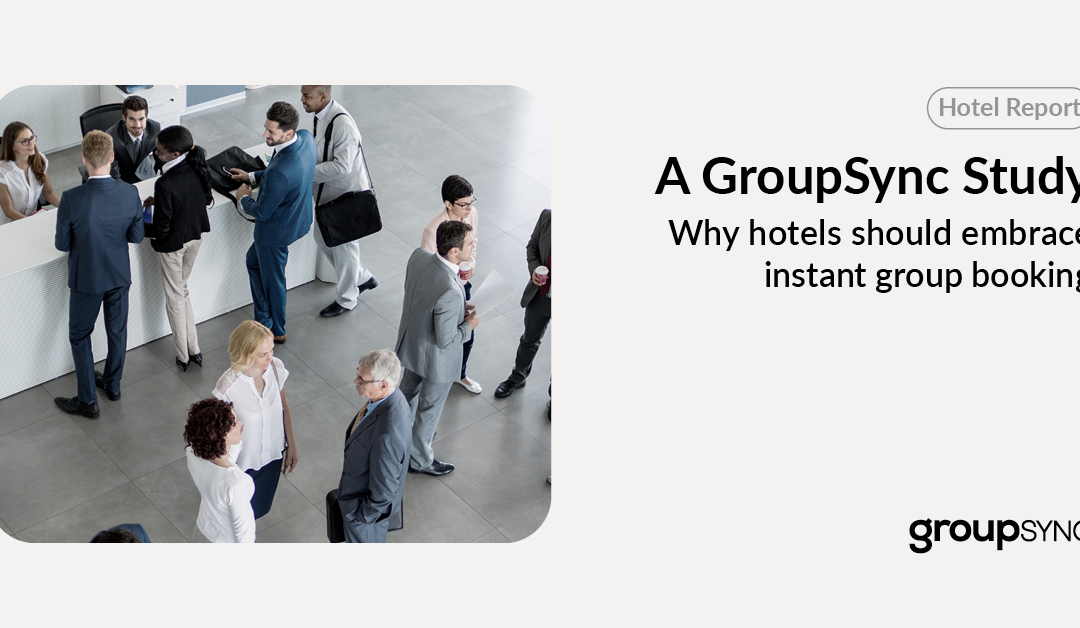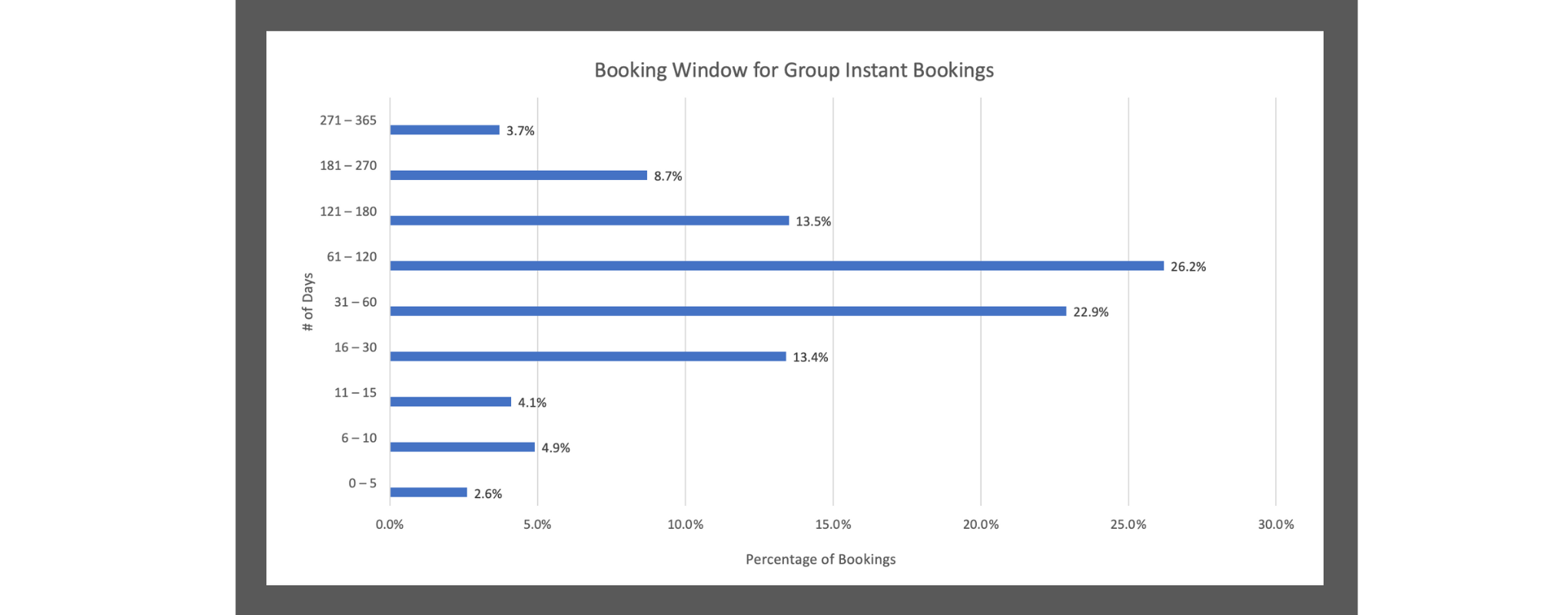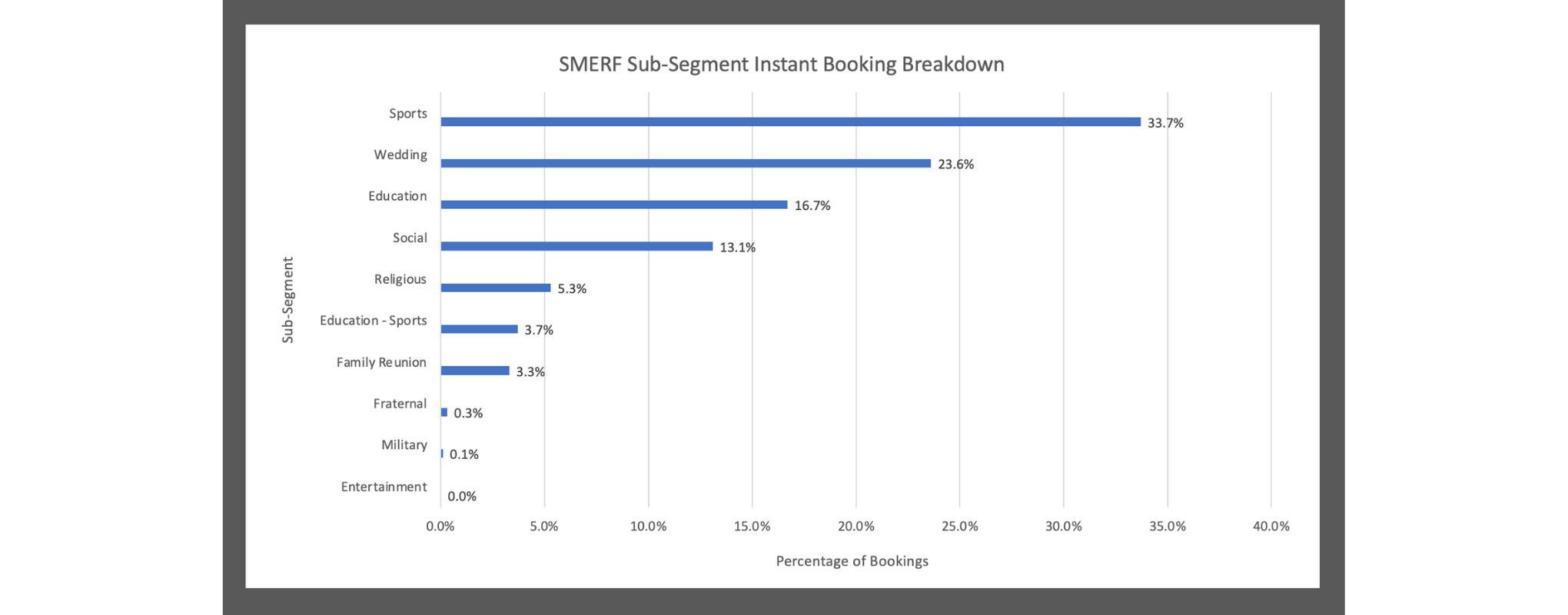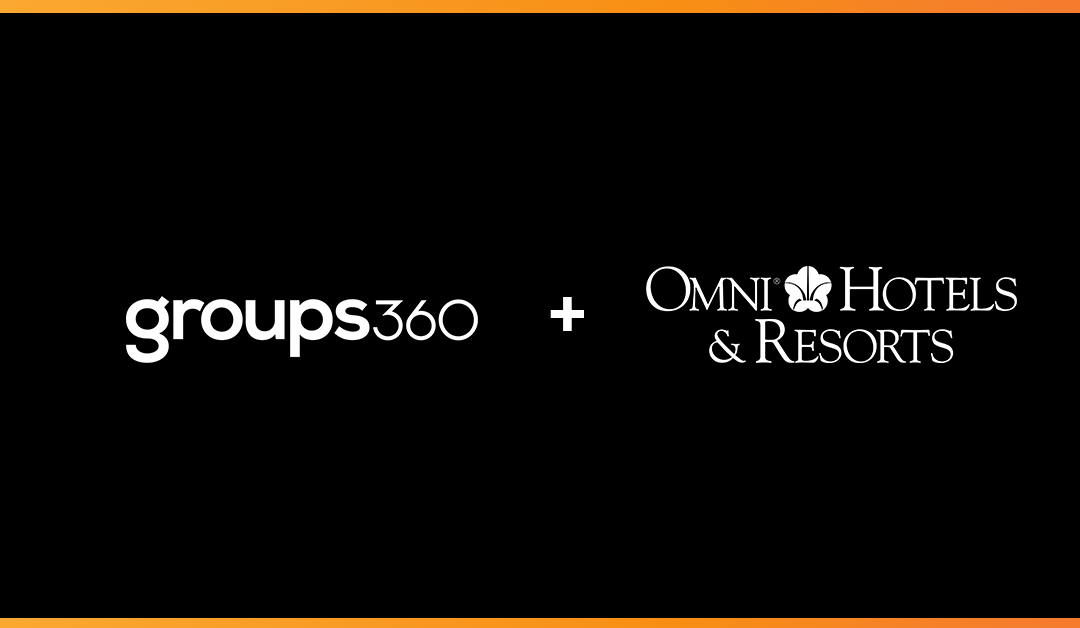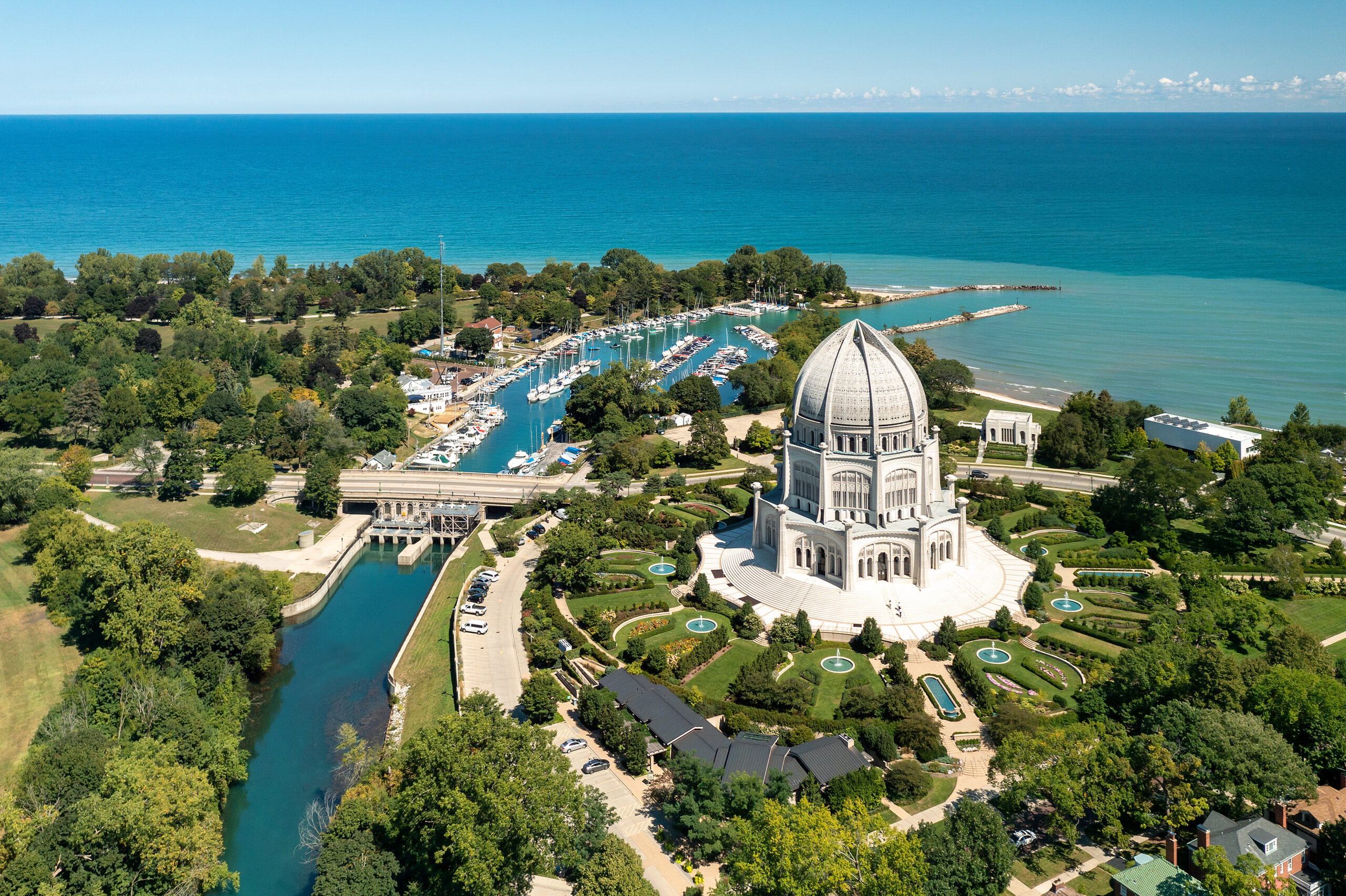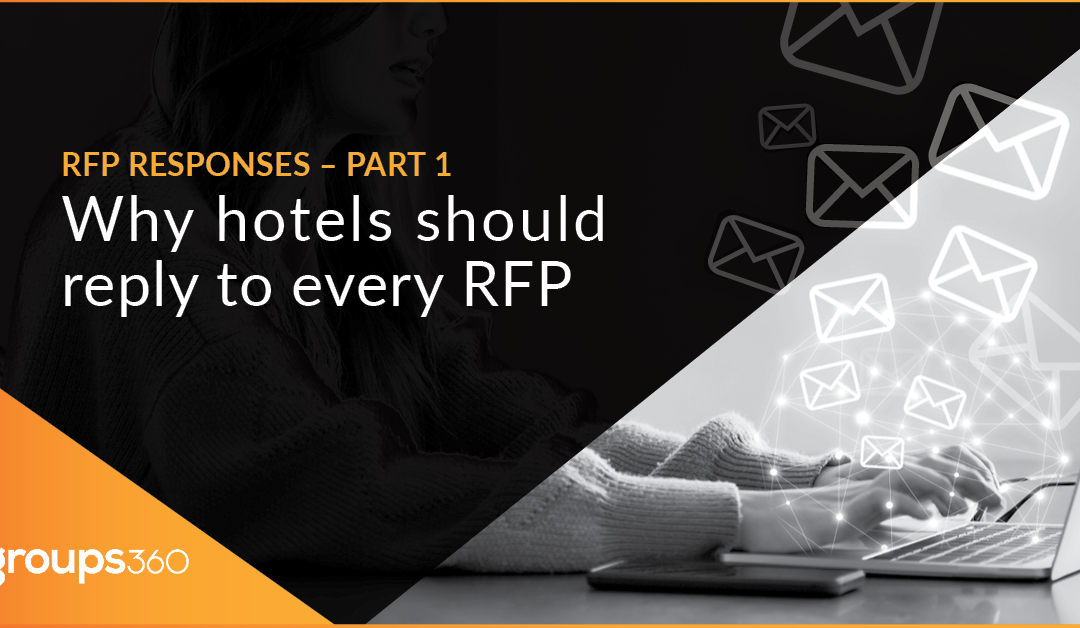
A New Era for Group Travel: Embracing the Digital Shift
Originally published by Hospitality Technology, written by our Chief Customer Officer, Tim Flors…
As planners demand more efficiency and personalization, technology is revolutionizing the way hotels and event professionals collaborate.
The group travel industry is in the midst of a transformation, driven by technological advancements, data-driven insights, and evolving consumer expectations. What was once a fragmented and complex process involving multiple touchpoints, phone calls, and emails with various stakeholders is quickly being reshaped by digital tools, real-time information, and more sophisticated data analytics. This shift is having a profound impact on both hotel organizations and meeting planners, creating a future where the hotel sourcing, planning and booking process is more efficient, personalized and seamless.
As the chief customer officer at Groups360, I’ve witnessed firsthand how these changes are making life significantly easier for planners, hoteliers, and other event professionals. By streamlining booking workflows, enabling predictive analytics, and offering new self-service tools, the future of group travel is becoming both more efficient and more adaptable.
In this article, we’ll explore how data and technology are revolutionizing the group travel landscape, transforming both the experience for meeting planners and operational strategies for hoteliers.
The Impact of Data and Technology on Group Travel: A Game-Changer for Planners and Hoteliers
Data-driven decision-making is at the heart of this transformation. For planners, having access to a wealth of data about booking trends, attendee behavior, and group pricing can significantly enhance the decision-making process. By analyzing past booking patterns, planners can anticipate the needs of their groups, offering more personalized and tailored experiences. This ability to forecast demand and adjust plans accordingly is empowering planners to deliver better outcomes for their clients, while optimizing their budgets.
Predictive analytics is also playing a pivotal role. Through the use of advanced algorithms and machine learning, both planners and hoteliers can forecast demand with a higher degree of accuracy. This allows for smarter decisions around room availability, pricing, and even timing. For instance, hotels can adjust their group rates based on anticipated demand, while planners can use this information to better manage their event budgets. Real-time access to data makes this all possible, ensuring that rates, availability and event options remain aligned throughout the planning process.
In my experience, one of the most significant advantages of integrating real-time data into the group booking process is streamlining the booking process for both the planner and hotel. By integrating real-time data, such as live rates and availability into group booking platforms, we can ensure that both planners and hotels are aligned in terms of expectations, which minimizes friction and saves valuable time on both sides.
The Rise of Web-Based Booking Platforms: Efficiency, Transparency, and Self-Service Options
Another critical development reshaping the industry is the rise of web-based group booking platforms that allow planners to research, compare, and book event-based travel more efficiently. They are quickly eliminating the need to make countless phone calls, send multiple emails and sometimes wait days for responses from different hotel sales teams—if you get one at all. With online platforms, planners can instantly access up-to-date information, making the sourcing process significantly faster and more transparent.
The demand for these self-service booking tools is also on the rise. In fact, the percentage of instant bookings out of all eligible group bookings on our GroupSync online platform has nearly doubled in the past two years alone. This shows that more and more planners are opting for platforms that let them book travel, event spaces, and services with minimal back-and-forth communication. They want speed, efficiency, and control over their planning process. This trend is driven by the need for time-saving solutions as planners are increasingly tasked with managing larger event portfolios while demonstrating ROI for every event.
For example, GroupSync allows planners to search and compare thousands of properties worldwide based on specific criteria, enabling them to view and compare rooms, event spaces, catering, and other services. This online sourcing and booking solution allows planners to access 225,000 properties globally and submit RFPs through a streamlined process, all at once to simplify their workflow and save valuable time. In addition to RFP options, GroupSync also allows planners to book participating hotels instantly, without submitting an RFP at all. Currently, about 25,000 properties can be instantly booked online, a capability that has never been available before—especially in a multi-branded setting.
This flexibility gives planners the ability to make quicker, more informed decisions and frees up hotel sales teams to focus on more complex bookings, thus creating a win-win situation for everyone involved.
Perspectives from Meeting & Event Planners: Creating New Efficiencies in Planning and Workflow
As event planners are under increasing pressure to deliver more personalized and memorable experiences for their clients, they are also expected to prove the ROI of each event. Whether it’s a corporate meeting, association gathering, or large conference, planners are seeking more efficiency and accountability in their workflow. Data-driven insights are empowering planners to deliver on these expectations, but they also need tools that help them manage the increased complexity of today’s group travel demands.
Collaboration tools, for instance, are playing a central role in simplifying workflows. These tools enable planners to coordinate seamlessly with hotel staff, other team members, and even external vendors, improving communication and reducing the likelihood of miscommunication or errors.
According to Carla Bond, Vice President, Strategic Accounts at Prestige Global, “As an agency partner for our planner clients, I’m focused on technology that creates efficiencies, drives value, and most importantly, delivers data that proves ROI and the value of events for our clients as well.”
Bond’s statement underscores an essential aspect of modern event planning: efficiency is paramount, but the ability to demonstrate the impact of an event is even more critical. As planners work to meet this demand, they’re turning to digital tools that not only save time but also help to justify event costs and assess their overall value to stakeholders.
Hotel Organizations are Adapting to New Expectations in Group Travel
Hoteliers are also adjusting to this new reality. With group travel playing a more significant role in their business strategies, hotels are evolving to meet the unique needs of group travelers. This includes offering tailored group rates, flexible booking options, dedicated group services, and event spaces that cater specifically to the needs of planners and attendees. As hotel organizations look to stay competitive, they must find ways to balance flexibility and profitability.
Dynamic pricing and revenue management are critical to this evolution. By leveraging advanced analytics, hotels can adjust room rates for group bookings in real time, ensuring they remain competitive while also maximizing profitability. Integrating these systems with booking platforms like GroupSync allows hotels to streamline their operations and deliver a seamless experience for planners.
As Oral Muir, Vice President of Partnerships, Experiences, and Distribution at Hilton Worldwide, points out, “At Hilton, we find that about 60% of all of our bookings happen outside of normal business hours… online booking for groups is a win-win for all involved—particularly smaller meeting planners.”
The Role of Technology in Shaping the Future of Group Travel
The future of group travel is undeniably digital-first. As planners and travelers increasingly expect to manage all aspects of their events—from sourcing and booking to budgets and itineraries—online platforms will become indispensable tools in the group travel ecosystem. The shift to a digital-first approach will allow for greater personalization, flexibility, and collaboration across the entire planning process.
In the future, group travel will be predominantly digital-first, and the tools that allow for seamless, real-time interaction between planners and suppliers will be at the core of the industry’s evolution.
The Future of Group Travel: Innovations and Challenges
Innovation will continue to shape the group travel landscape. From advanced collaboration tools to real-time itinerary updates, new technologies will further streamline workflows and enhance the planner’s ability to deliver bespoke experiences for attendees. However, as planners demand more personalized and adaptable solutions, the group travel industry must remain agile and responsive to these changing needs.
“The future of group travel will revolve around greater personalization and flexibility,” says Muir. “Planners and travelers will be able to curate experiences tailored to their exact preferences, while working more efficiently.”
A New Era for Group Travel
The group travel industry is in the midst of a digital transformation, one driven by data, technology, and a shift in consumer expectations. By embracing these changes, both planners and hoteliers can position themselves for success in a more competitive, efficient, and customer-centric market. However, it’s important that we remember the core of our industry: personalized service. The tools and technologies we implement must enhance the human touch, creating a seamless experience for all stakeholders involved.
The future of group travel is here. The question now is: are you ready to join your peers and embrace it?
Ready to experience the digital difference?
Easily search, compare, and book hotel room blocks, meeting rooms, or event space on GroupSync.

